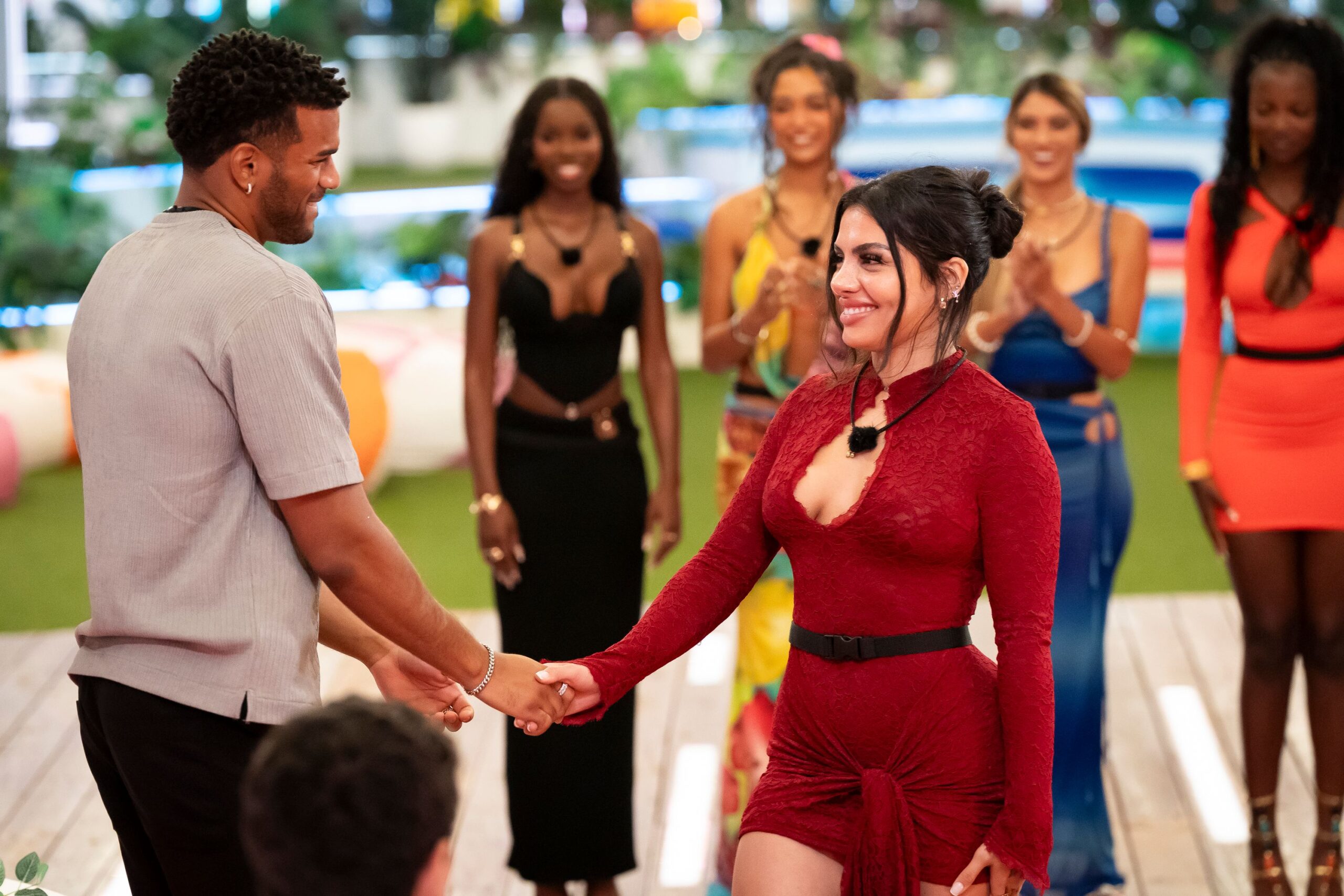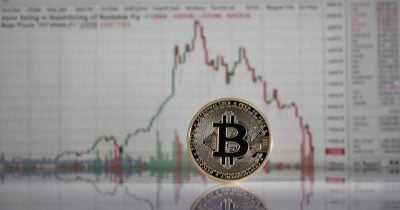Carson Campbell didn’t feel any remorse for his vote, and was even relishing in the chaos it might cause one of Love Island USA’s most contentious cast members of the season. “I love mess and I love reality TV,” the 24-year-old student and content creator says. “I love something with an end goal, when people are working toward a purpose.”
As a Love Island USA superfan who live-tweets and recaps every episode on TikTok, Campbell feels personally invested in how the reality dating show unfolds. Most reality programs are pre-recorded, but Love Island USA, an American spinoff of a British dating show by the same name that follows contestants at a luxury villa with the goal of finding love, is filmed in real time and airs six nights weeks (on Peacock) over a six-week period in the summer. Its format relies on votes from viewers, via the Love Island app, to help determine how the show progresses (you vote on favorite cast members, who pairs off on dates, and more).
That interactive component gave viewers the power to split up two contestants—Huda Mustafa and Jeremiah Brown—who coupled together in the first episode but had become too toxic for their own good by episode 13. Mustafa was controlling and territorial; in one episode she eavesdropped on Brown during a private conversation with other male contestants, calling him a “bitch” and a “pussy.” Brown was portrayed as a textbook love bomber; during a group challenge he confessed to telling 10 women he loved them.
When the time came to decide on their relationship, “we all agreed,” Campbell tells me from his home in Queens, New York. He often consults with his friends when a vote takes place. “America came together as a democracy and said we need them apart no matter who we have to throw in there as collateral. In the grand scheme of things, it’s not fair. But it was the right thing to do. Watching at home, we can see when something is going to crash and burn.”
The split sent Mustafa into a rage and her “crash out” went viral across social media. “Peak cinema,” Campbell calls it. While a lot of fans appeared to be fed up with Mustafa, prior to the shake-up, some worried about her well-being— “I thought Huda crashout would be funny, y’all I was wrong,” @daesbloodline posted on X. Fans have even tracked down Noah Sheline, her ex-boyfriend and father of her four-year-daughter, to express their disapproval for Mustafa. “You got one hell of an easy full custody battle ahead of you brother,” one person commented on his TikTok feed. Sheline released a statement on TikTok calling the fan obsession “unhealthy.”
“Her going on that show to find love, or whatever you think it was she’s doing, remember she’s still human, she has a daughter, and a life,” he wrote. “ I don’t like that I’m seeing so much negative shit on my page or even clips of it about her.”
Although Mustafa was villainized for her erratic behavior on the show, “crashing out”—a Gen Z term for a meltdown—is not uncommon on the show. And it’s a response that seems almost unavoidable on a social experiment where participants are not only surrounded by each other day and night and forced to watch their love interests hook up with other people, but are also subjected to the audience’s often ruthless opinions of them. “I don’t know whether it’s America hates me, or America knows something I don’t,” Mustafa says in a confessional following her fan-induced breakup with Jeremiah. The answer to that may be a little bit of both. One thing is for sure: with 1.2 billion minutes viewed in its first two weeks—the second highest for a streaming program on television—America is watching. Closely.
Because Love Island’s fans help influence major storylines, outcomes, and eliminations, they essentially become backseat producers. But that power can also facilitate an unhealthy amount of investment, says Colman Feighan, 26, a former reality TV producer who is based in LA.
“Involvement from the fans makes a lot of people feel like they can control every single outcome. And they—very much like Huda—feel out of control when it doesn’t necessarily go exactly as they want, or if it does, then they want more to go in their way,” he says. “Very much like the crash outs we’ve seen with her, people are having their own crash outs as well.”
For some fans of reality TV, who treat the genre like an escapist fantasy, their deep investment comes from “getting to play god on top of it,” says Alo Johnston, a licensed therapist at Pershing Square Therapy. “If you as an audience member are using the show to escape a real world that feels uncontrollable and overwhelming then you might feel extra invested in controlling this one small thing.” Following Brown’s elimination from the show, fans demanded his return and have since created a Change.org petition that has over 72,000 signatures.
But it can also be about more than control—our reactions often have to do with how we deal with personal traumas. “When you start to see the way the way people talk about reality show cast members, where some people say, ‘Oh I didn’t think what he did was that bad,’ and others are saying ‘I think he’s the devil incarnate,’ you’re seeing that they are actually reacting to their ex and not the actual person on screen,” Johnston says. “A crash out could be because you are thrown back into processing your own grief or trauma.”
Mustafa’s ex Sheline isn’t the only one who became collateral damage in viewers’ displeasure over how the show has played out. It is a common theme among devoted watchers this season—especially in superfan communities on X, like Huda HQ and Ace Mob, and across TikTok—where online discourse has reached new levels of intensity.
In some cases, viewers are influencing casting decisions at the very outset of the show—and doing deep background checks to reveal anything they consider problematic about contestants.
Before the premiere, fans alleged that two contestants—Austin Shepard and Yulissa Escobar—support MAGA and promised to vote them off right away. A video of Escobar using the n-word in a podcast interview surfaced online, TMZ reported, and she was dropped from the show in the second episode. (Shepard has lasted.) Fans have alleged that multiple other cast members support Trump and the Republican party and spun up a conspiracy theory that contestants Ace Greene and Chelley Bissainthe had a relationship before the show; Bissainthe’s friends have said they followed each other before the show but never dated.
“I find it strange when people suddenly try to expose someone just because they’ve gained popularity,” Feighan says. “If the person has committed a crime or engaged in abusive behavior—even if it’s not publicly documented—then calling that out is fair. But if the issue is simply a difference in opinions that upsets some viewers, the appropriate response is to stop supporting them and unfollow, not to incite a public takedown as not everyone is going to share the same beliefs.”
The negative backlash this season—which has resulted in some contestants getting death threats—is so widespread that Peacock aired a warning during its June 24 episode. “The keyword in Love Island is … LOVE. We love our fans. We love our Islanders. We don’t love cyberbullying, harassment or hate,” it read. On X, the show posted a reminder to viewers to “be kind” and, in an episode of the weekly recap show Aftersun, host Ariana Maddox urged fans to stop acting so reckless. “Don’t be contacting people’s families. Don’t be doxing people. Don’t be going on islanders’ pages and saying rude things,” she said. In 2018, former Love Island UK contestant, Sophie Gradon died by suicide after appearing on the show. That same year, production mandated cast members to attend a post-finale evaluation with a mental health professional, according to Vanity Fair, and cast members now have the option to attend up to eight counseling sessions. In 2019, contestant Mike Thalassitis also died by suicide; that same year show’s former host, Caroline Flack posted on Instagram about being “in a really weird place”. Flack took her life in 2020.
“If the relationships on Love Island make us believe the performance of love leads to the real deal,” Anna Peele wrote in Vanity Fair, “the losses—it feels shameful to say—seem to authenticate the depth of human experience.”
But it’s not all on the fans. Producers are incentivized to edit shows around trending conversations, which raises the stakes for viewers, according to Feighan. “They have the ability to reach numbers like that because whatever is trending online they are able to see that and then put out teasers that show whatever is currently trending on platforms like TikTok,” he says. “It’s catering to the people that are tuning in and talking about it on a daily basis. Whereas you don’t have so much flexibility with other dating shows that are all pre-recorded.”
Reality TV is formatted to be addictive, says Jennifer Gillian, a professor of media studies at Bentley University. “Add to that the surprising ethical norming that occurs when viewers begin to ask themselves, ‘What would I do in this situation? What do I think others would agree is the right thing to do?”
But “that’s where the line gets blurred—people are treating it almost like a competition talent show when in reality it’s a love show,” Feighan says. “Online culture in general—with the keyboard warriors and trolls—is so quick to give input on how they would do something, and it’s very easy to say so when you hide behind a screen, but at the end of the day these are real people on a TV show.”
Though this season has courted its fair share of controversy, conversation across social media is still mostly jokes and memes, especially TikTok supercuts of the villa’s unofficial “Mean Girls” crew—Greene, Vansteenberghe, and Taylor Williams. “Imagine you come out the villa … get your phone, think you gon see thirst trap edits of you on tik tok and instead Morgan Freeman calling you a RAT,” @ascenario_ said of another video, which called out Vansteenberghe for being two-faced.
For Campbell, the crashing out, the fan communities, and emotional intensity viewers bring to the show is what makes it must see TV. It’s how reality TV—on and off screen—works.
“With this show specifically, I don’t have a problem with anybody loving who they love and who they’re going hard for,” Campbell says. “My issue is who you like in the show tells me more about you. If your group is called Huda HQ—which is a very corny name—it tells me that you are mostly unstable. The problem is not necessarily about being a part of the larger fan base, because that’s normal now.”



